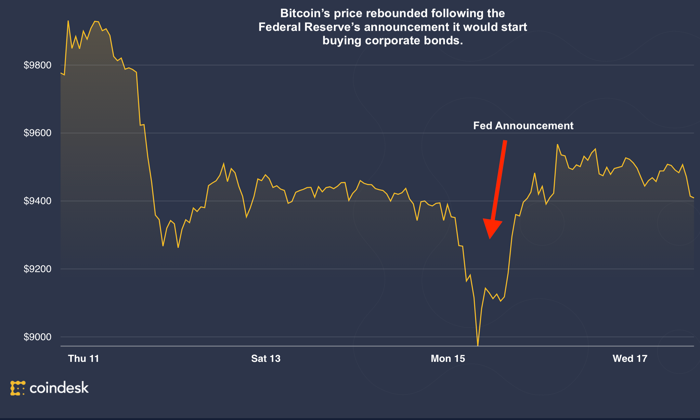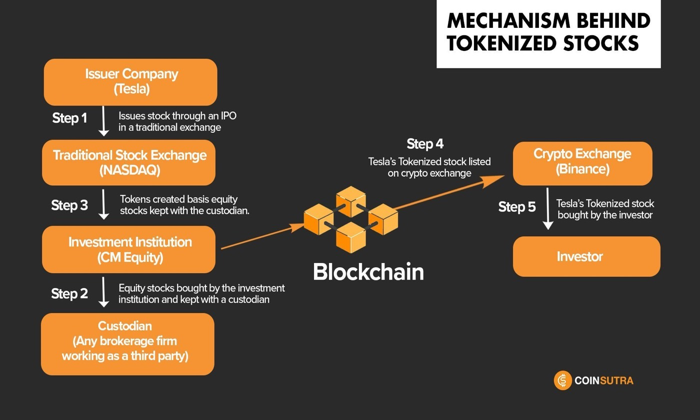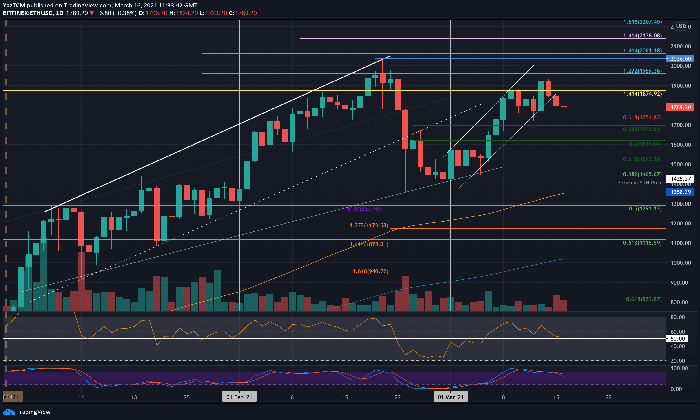The growing discourse around Bitcoiners and US economic data reveals a stark divergence in perception regarding financial metrics and their implications. Prominent voices in the cryptocurrency community, such as Anthony Pompliano, assert that Bitcoiners were among the first to uncover inaccuracies in US economic data. This critical analysis encompasses a range of topics including Bitcoin economic data, US inflation figures, and broader economic forecasts. In an era where trust in traditional financial metrics is waning, Bitcoin adoption trends showcase a shift towards decentralized financial systems that aim to rectify these discrepancies. As the cryptocurrency market analysis continues to evolve, Bitcoiners remain pivotal players in challenging conventional economic narratives.
In recent discussions surrounding cryptocurrency and traditional financial systems, an intriguing narrative is emerging about how Bitcoin enthusiasts perceive US economic indicators. Many analysts are starting to question the reliability of these figures, suggesting a growing skepticism among financial practitioners. This skepticism isn’t merely anecdotal, as it echoes broader sentiments about the validity of government reports such as inflation rates and job statistics. With the dynamics of Bitcoin adoption creating waves in the financial sector, the implications of flawed economic data could redefine how investments are approached moving forward. As we delve deeper into this topic, it becomes evident that the intersection of Bitcoin and US economic metrics is worth exploring for insights on future market behaviors.
Understanding Why Bitcoiners Question US Economic Data
Bitcoiners, represented by influential figures like Anthony Pompliano, are increasingly vocal about their skepticism towards US economic data. The broader cryptocurrency community has historically approached traditional finance with a critical lens, often identifying discrepancies between reported statistics and real-world conditions. For Bitcoiners, the recognition of flawed economic data is not just an academic inquiry; it’s an essential part of their investment strategy. Pompliano articulated this perspective clearly, suggesting that those invested in Bitcoin were ahead of the curve in understanding the limitations of government-released figures.
This movement among Bitcoiners highlights a strategic mindset that seeks to capitalize on the perceived inaccuracies in US economic data. With ongoing debates about US inflation figures, employment statistics, and GDP calculations, more investors are adapting their financial models to account for these discrepancies. As Pompliano mentions, the unique position of Bitcoin and similar cryptocurrencies allows their adopters to hedge against the volatility and potential unreliability of fiat currencies, making these investments seem even more attractive during economic downturns.
Impact of US Economic Data Flaws on Bitcoin Adoption Trends
The ongoing scrutiny of US economic statistics has profound implications for Bitcoin adoption trends. As distrust in government reports grows, individuals are increasingly seeking alternative stores of value that can withstand economic fluctuations. Bitcoin, with its decentralized nature and limited supply, appears to be an appealing option for many. Pompliano’s articulation of this mistrust reflects a broader sentiment within the cryptocurrency community, which sees Bitcoin not only as a speculative asset but as a fundamental safeguard against inflation and economic mismanagement.
As analysts like Jeff Parks speculate about Bitcoin’s longevity compared to the US dollar, the implications are clear: Bitcoin is becoming a trusted resource among those who believe traditional financial systems may falter. The continued attention from major financial experts suggests that Bitcoin could play a critical role in an evolving economy that increasingly relies on digital assets. This shift in mindset among investors underscores a fundamental transformation in financial habits, where the legitimacy of Bitcoin as an asset class gains traction amid skepticism of conventional economic data.
Pompliano’s Insights on Tariffs and Economic Misconceptions
Anthony Pompliano has raised pivotal concerns regarding the perceived impact of tariffs, particularly those implemented under the Trump administration. His arguments suggest that many finance professionals fail to acknowledge the flawed foundation of existing data, which affects their assessments. By emphasizing the importance of accurate economic analysis, Pompliano encourages a re-evaluation of traditional financial wisdom, thereby implying that a fresh perspective is necessary for understanding market dynamics accurately. This line of reasoning resonates well with Bitcoiners who are accustomed to challenging the status quo.
The uncertainty stemming from tariffs and changing trade policies illustrates why Bitcoin and cryptocurrencies might be favored over traditional currencies. As external factors such as tariffs affect market confidence, Bitcoin’s attributes as a digital asset become increasingly attractive. Bitcoiners recognize that while the mainstream narrative revolves around short-term market volatility, the long-term potential of cryptocurrencies may offer superior returns and stability compared to fiat currencies.
Critical Analysis of US Inflation Figures in Crypto Context
The accuracy of US inflation figures has been a topic of heated debate, notably among cryptocurrency investors who rely on sound economic data to inform their decisions. Pompliano’s assertion that finance professionals often trust these figures blindly serves as a cautionary tale for investors weighing their options in a tumultuous economic climate. Understanding inflation’s impact is critical for Bitcoiners who seek to leverage their investments against the unpredictable nature of traditional monetary policy.
For many in the crypto world, distorted inflation figures reinforce the necessity of Bitcoin as a hedge against potential monetary collapse. The ongoing discourse surrounding US inflation underlines the urgency for transparency and accuracy, prompting more individuals to explore cryptocurrencies that operate outside of conventional financial systems. In this context, Bitcoin not only represents a mode of investment but also a movement towards financial independence and informed economic forecasting.
Bitcoin’s Divergence from Traditional Markets Amid Economic Concerns
Recent market trends reveal a dichotomy between Bitcoin and traditional stock markets, particularly in times of economic uncertainty. As highlighted in analyses of the cryptocurrency market, Bitcoin’s price movements have shown resilience even when other asset classes faced downturns. This divergence is particularly pronounced amidst ongoing discussions about tariffs and macroeconomic stability. Bitcoin’s ability to withstand volatility during uncertain times might signal a broader acceptance and recognition of its value as a legitimate asset.
The behavior of Bitcoin during tumultuous market situations can be linked back to the growing skepticism towards traditional economic indicators and financial advice. As more investors turn their backs on conventional wisdom, Bitcoin stands ready to capitalize on this shift, highlighting its role as a beacon for those seeking alternative solutions outside of typical economic structures. The observed increase in Bitcoin’s stability amidst stock market fluctuations paves the way for renewed interest and investment in the cryptocurrency sector.
Future of Bitcoin as a Hedge Against Economic Turbulence
As skepticism regarding traditional economic assessments continues to rise, many analysts argue that Bitcoin’s future as a viable financial hedge grows stronger. The concern surrounding US economic data — from inflation rates to GDP statistics — intensifies the pursuit for dependable alternatives that can protect wealth. Bitcoin, with its finite supply and decentralized nature, is positioned to address these concerns, providing investors with an opportunity to safeguard their resources against economic breakdown.
Furthermore, as high inflation erodes the value of fiat currencies, the demand for Bitcoin may increase significantly. Endorsements from key financial figures like Pompliano reinforce the collective belief that Bitcoin is not merely a speculative asset but a serious contender in the financial ecosystem. This shift towards Bitcoin reflects a broader trend of individuals and institutions re-evaluating their financial strategies amid unreliable government data, pointing towards a potential future where Bitcoin plays a central role in the economic landscape.
Analytical Lens on Bitcoin and Cryptocurrency Market Dynamics
Understanding the intricate relationship between economic data and cryptocurrency performance is essential for investors. The insights provided by market analysts, including Pompliano, signal a transformative phase where cryptocurrency is acknowledged not just as a financial instrument but as an alternative economic paradigm. With Bitcoiners leading the charge in questioning traditional data reliability, the conversation surrounding cryptocurrency market dynamics expands and evolves.
As institutional interest in Bitcoin surges, driven by concerns over the reliability of economic statistics, a greater emphasis on comprehensive market analysis becomes paramount. By prioritizing accurate data about Bitcoin’s performance and its correlation to macroeconomic indicators, stakeholders can make informed decisions that transcend traditional investing perspectives. This analytical approach enables Bitcoiners to capitalize on opportunities while fostering a more profound understanding of the cryptocurrency market’s complexities.
Embracing Bitcoin: A Shift in Financial Mindset
The recent surge of interest in Bitcoin signifies a notable shift in how investors perceive value in an increasingly unpredictable economy. As traditional beliefs are challenged and in light of prominent figures like Pompliano questioning the accuracy of economic data, more individuals are drawn to Bitcoin as a sanctuary amid financial uncertainty. This evolution reflects not just a change in trading behavior but a fundamental reassessment of how economic stability is defined in the modern world.
Bitcoin’s value proposition is no longer seen merely as a speculative asset; it’s being recognized as a critical component in a diversified financial strategy. As discussions around data reliability amplify, Bitcoin adoption trends are likely to continue growing. Investors seeking refuge from government-influenced asset management are likely to find themselves aligning more closely with the Bitcoin ethos, positioning digital currency at the forefront of their financial planning.
Regulatory Implications for Bitcoin and Traditional Finance
The regulatory landscape surrounding Bitcoin and cryptocurrencies is evolving rapidly as governments and financial authorities attempt to understand and control this new asset class. The implications of regulatory decisions can significantly affect how Bitcoin is perceived within the broader economic environment. As concerns about traditional data integrity arise, regulators may face pressure to adapt their frameworks to accommodate the growing demand for transparency and accountability in financial reporting.
For Bitcoiners, these regulatory developments could either pose challenges or present new opportunities. An increased focus on creating a regulatory environment that acknowledges Bitcoin’s unique attributes might further legitimize the cryptocurrency and foster broader adoption. Understanding these dynamics is essential for investors looking to navigate the changing landscape, as the interplay between regulation and market performance could dictate the future trajectory of Bitcoin in a restructured economic climate.
Frequently Asked Questions
What is the significance of Bitcoiners recognizing flaws in US economic data?
Bitcoiners have been pivotal in identifying inaccuracies in US economic data, such as inflation figures and GDP statistics. According to Anthony Pompliano, they capitalized on this insight to financially position themselves, believing that the mainstream finance community relies too heavily on potentially flawed government data.
How do Bitcoin adoption trends relate to US economic data perceptions?
Bitcoin adoption trends often parallel perceptions of US economic data reliability. As more people recognize potential inaccuracies in government statistics, interest in Bitcoin as an alternative asset increases. This shift suggests that Bitcoin could be seen as a hedge against unreliable US economic data.
What role does Pompliano’s perspective play in cryptocurrency market analysis?
Pompliano’s criticism of the reliance on US economic data adds significant insight to cryptocurrency market analysis. His assertion that many finance professionals trust flawed data highlights the growing divide between traditional finance and crypto advocates, which may influence Bitcoin’s market performance and adoption.
How do US inflation figures impact Bitcoin’s market performance?
US inflation figures directly impact Bitcoin’s market performance as they shape investor sentiment. When inflation data is perceived as inaccurate or concerning, Bitcoin often gains appeal as a hedge against such economic uncertainty, leading to increased buying interest and price fluctuations.
Why are Bitcoiners critical of the accuracy of US job numbers and GDP statistics?
Bitcoiners, including influential figures like Pompliano, question the accuracy of US job numbers and GDP statistics due to a belief that government data may misrepresent economic conditions. This skepticism fuels their argument for Bitcoin as a more reliable store of value compared to traditional fiat currencies.
| Key Point | Details |
|---|---|
| Bitcoiners’ Awareness | Bitcoiners were the first to identify flaws in US economic data, allowing them to position themselves for potential gains. |
| Pompliano’s Insights | Anthony Pompliano highlighted that many finance professionals mistakenly trust government data, leading to flawed analysis. |
| Skepticism of Government Data | Concerns about the accuracy of inflation figures, job numbers, and GDP statistics have been echoed by various experts, including Treasury Secretary Scott Bessent. |
| Bitcoin vs. US Dollar | Amid US dollar decline and tariff discussions, analysts suggest Bitcoin may be a more reliable asset than the US dollar in the long run. |
| Recent Performance | Bitcoin showed resilience during recent stock market declines, indicating a potential shift in investor sentiment towards cryptocurrencies. |
Summary
Bitcoiners US economic data has been called into question by prominent figures in the cryptocurrency space, most notably by Anthony Pompliano. He emphasizes that Bitcoiners recognized discrepancies in the US economic indicators long before mainstream finance caught on. With the growing skepticism surrounding the reliability of these figures, many are re-evaluating their investment strategies, and Bitcoin is increasingly seen as a viable alternative to traditional financial assets. As more analysts and investors echo concerns about government data accuracy, the shift towards Bitcoin could mark a significant turning point in how we perceive financial security.
Bitcoiners have become increasingly astute in analyzing US economic data, recognizing early on that much of it might be flawed — a sentiment echoed by crypto entrepreneur Anthony Pompliano. In a recent insight, Pompliano emphasized how Bitcoiners have positioned themselves to capitalize on potential inaccuracies in reported figures, including US inflation figures and GDP statistics. This growing awareness of discrepancies in Bitcoin economic data demonstrates that a significant portion of the cryptocurrency community is actively engaged in cryptocurrency market analysis. As concerns escalate over government statistics, Bitcoin adoption trends seem set to intensify, attracting more investors who seek shelter from unreliable economic indicators. Clearly, the evolving relationship between Bitcoiners and US economic data could shape the future of financial markets and investment strategies.
The rise of cryptocurrency advocates has prompted a critical examination of financial reports and statistics provided by the government. By questioning the reliability of traditional economic metrics, such as inflation and employment data, many in the crypto community are adopting a more discerning perspective on monetary policies. This skepticism mirrors a broader trend seen within the cryptocurrency space, where data accuracy is paramount, and strategies like those championed by influencers like Pompliano are becoming commonplace. With the increasing fluctuations in the US dollar and ongoing economic uncertainties, many investors are turning to cryptocurrencies as a more stable investment alternative. This shift may signal an era where the foundations of finance are evaluated through a cryptocurrency lens, redefining how we interpret economic indicators.














